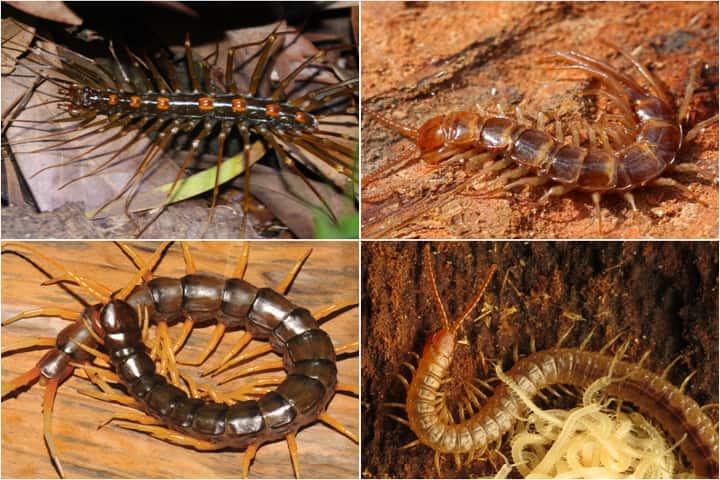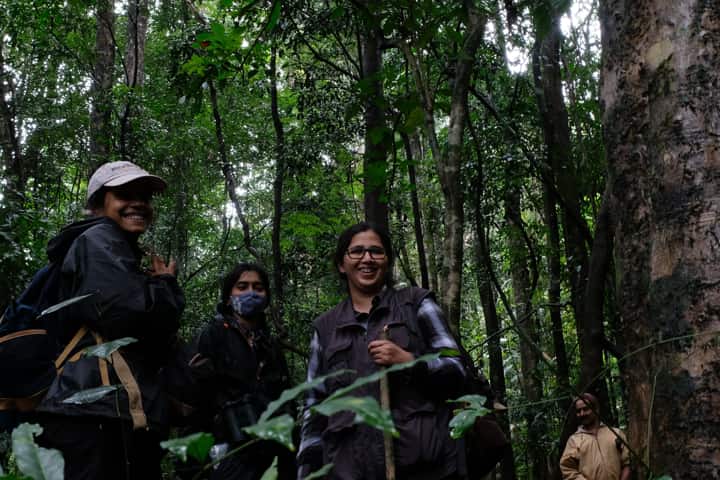

Centipedes are solitary and nocturnal predators with an evolutionary history of 420 million years (Pic. Courtesy wikimedia commons)
Genetic diversity is not just limited to different species which exist on the planet but also the incredible variety which are there within a species. The latter is measured through differences in DNA mutations between the individuals of a species to know and understand how they respond to environmental variability and also influence diversity in species.
Studies on genetic diversity are generally limited to some well-studied groups of animals but this does not bring to the fore the richness of animal diversity. It also hampers scientists to assess general patterns on this subject. Now scientists of Council of Scientific and Industrial Research-Centre for Cellular and Molecular Biology, Hyderabad and London’s Natural History Museum, led by Dr. Jahnavi Joshi have made a significant contribution in this field by studying genetic diversity of centipedes.
This global study found that species traits such as body size and geographic factors explain over 25 per cent of variation in genetic diversity in centipedes.
Talking about the study, Dr. Joshi told India Narrative: “We studied genetic diversity among centipedes, using DNA sequences and traits including body size, vision and whether or not offspring receive care, together with distribution data sourced from museum databases and published literature.”


A soil invertebrate group, centipedes, are solitary and nocturnal predators that have an evolutionary history of 420 million years. “Centipedes are ancient arthropods, and vary widely in species traits and biogeographic history. This along with the availability of their DNA sequences, offers a unique opportunity to investigate the correlates of genetic diversity in organisms that are not familiar laboratory models,” Dr. Joshi explained.
The research team used more than 1,200 sequences from a maternally inherited gene for 128 species and found that that genetic diversity in centipedes is higher than other arthropods such as spiders and insects.
Apart from this they discovered that genetic diversity decreased in species with larger body sizes, and that it is higher for species where the mother cares for offspring. The study also pointed out that diversity was higher in the Southern than in the Northern Hemisphere which they suggested may be due to historic climatic stability and low seasonality in southern latitudes.
Further the variety increased with geographic distance between individuals which indicated limited exchange of individuals between farther sites.
Summing up the study, Dr. Bharti Dharapuram, its co-author observed: “Our study finds similarities in factors determining genetic diversity with earlier studies. This indicates that common underlying processes probably shape genetic diversity across animal groups differing in their evolutionary histories.:
She went on to add that the study “offered us hypotheses about the relationship between species traits and population structure that can be tested more rigorously at the regional scale of the Indian subcontinent in the future.”
CCMB is an Indian fundamental life science research establishment that operates under the aegis of CSIR.
The details of the study were published in Global Ecology and Biogeography and other members of the team were Pooja Yashwant Pawar and Gregory D. Edgecombe.
Prime Minister Narendra Modi interacted with members of the Indian diaspora here on Wednesday as…
The city of Hamburg in Germany is set to host the 11th edition of India…
The International Atomic Energy Agency (IAEA) has confirmed that two Iranian centrifuge production facilities, TESA…
The human rights department of the Baloch National Movement (BNM), Paank, has strongly condemned the…
In a major boost to India's coastal defence capabilities, the Indian Navy on Wednesday commissioned…
Volker Turk, the UN High Commissioner for Human Rights, on June 17 expressed concern over…